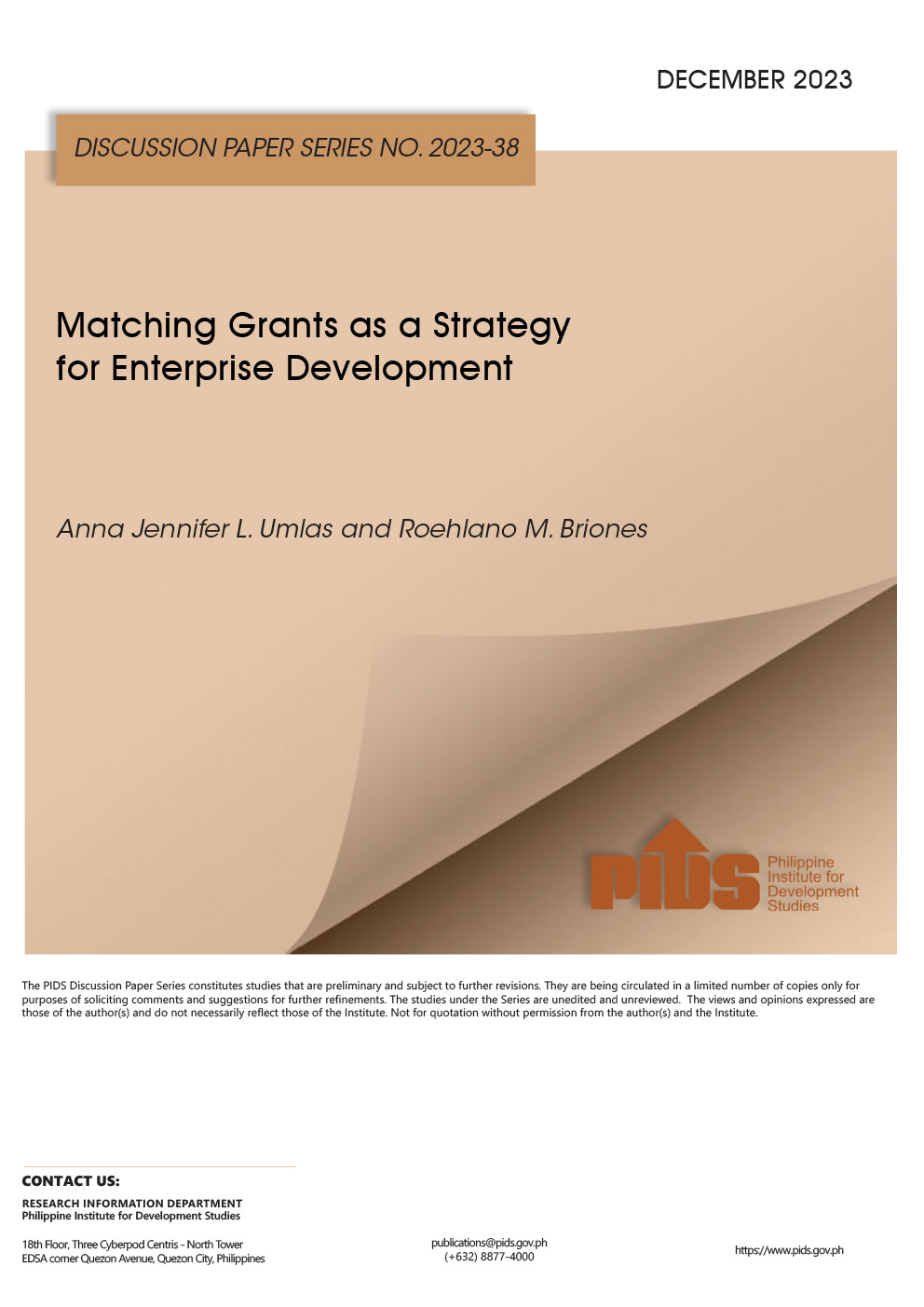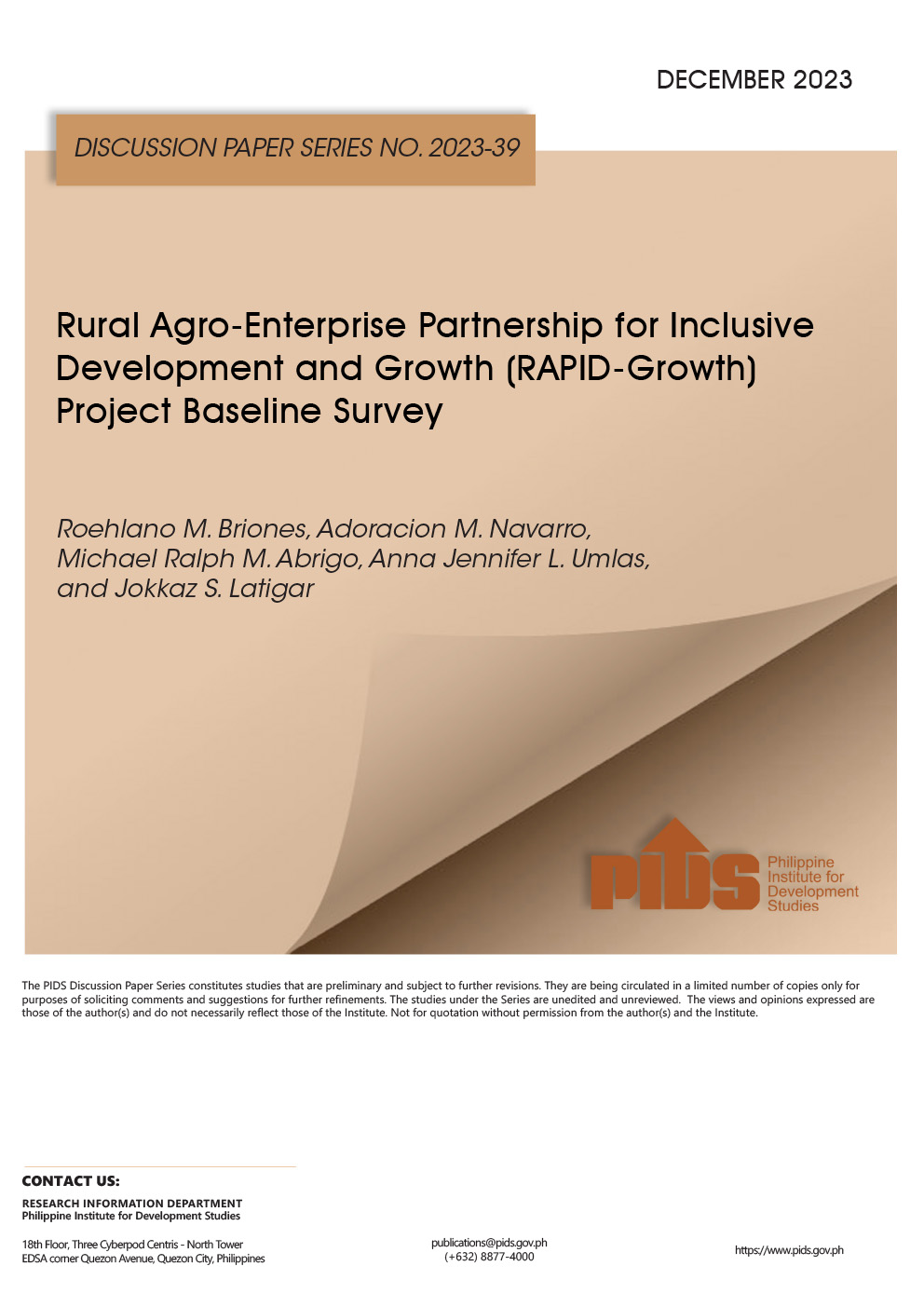IN what might be perceived as a remarkable departure from its main objective of distributing small parcels of land from large haciendas (agricultural estates) to individual tenant farmers, an official of the Department of Agrarian Reform (DAR) has suggested that farm consolidation may be the best path toward improving agriculture livelihoods and productivity.
This is an eminently sensible and long overdue recommendation, one that we agree wholeheartedly with, for precisely the reasons explained by the DAR official making the call, Undersecretary for Foreign-assisted and Special Projects Bernie Cruz, who spoke during a recent webinar hosted by state think-tank the Philippine Institute for Development Studies (PIDS).
To be sure, the Agriculture department is not abandoning its mandate of "parcelization," the term used by Cruz, and in fact, has gotten support from the World Bank to fast-track the distribution of agriculture lands. The project funded by the World Bank is called Support to Parcelization of Land to Individual Title or Split, which "seeks to give farmer-beneficiaries covered under collective certificates of land ownership award the chance to identify and own their respective shares of farm lots." The project, for which the World Bank provided $370 million in loans via the International Bank for Reconstruction and Development, was launched in June 2020.
Throughout its 30-plus years of existence, the Philippines' land reform program has been problematic. Bureaucratic and legal obstacles have slowed the distribution of land; as it turns out, hereditary land barons are generally unenthusiastic about handing over their real estate to their serfs and have fought hard to prevent or delay it.The bigger problem, however, is that even after land reform beneficiaries are successfully identified and granted titles to their share of the land, support to make them successful as farmers has been woefully inadequate. Many land reform beneficiaries - some estimates are up to half of them - eventually sell or mortgage their land. The end result is not only insufficient livelihood for farmers, but a general reduction in agricultural productivity on a national scale.
In his talk during the PIDS webinar, DAR's Cruz argued that farmers should consider land consolidation as one strategy to improve the outcomes of agrarian reform. He pointed out that whatever the social flaws in the hacienda system, it is at least efficient in terms of productivity because of economies of scale. One way that land reform beneficiaries can achieve the same thing, without necessarily giving up on the intentions of land reform, is by pooling their land and efforts through agrarian reform beneficiary organizations or ARBOs.
Two consolidating initiatives that are already being pursued by the DAR include the so-called "mega-farms" and the Inclusive Partnerships for Agricultural Competitiveness Project. Both initiatives are intended to improve market linkages and the competitiveness of farmers and aid the DAR in coordinating with institutional partners (the aforementioned World Bank project being one example) that can assist in capital buildup, management skills, and research and development.
It has long been recognized that no matter how just land reform may be in a social respect, it will ultimately fail if it does not substantially improve the quality of life of those it is intended to help. Likewise, land reform can be considered a failure if it results in lowered agricultural productivity. Both of those unfortunate outcomes have been the experience of the land reform program until now, but they do not have to be the final results of it.
Initiatives that encourage various modes of consolidation, if done without diminishing the benefits of land ownership of the individual land reform beneficiaries involved, can go a long way toward preventing these failures. In addition, the improvements to farm incomes and productivity that consolidation efforts can achieve will also do much to encourage agricultural expansion and succeeding generations to continue farming, both of which are critical to the nation's achieving food security.
We are encouraged that the DAR has integrated farm consolidation into its policies and is raising the profile of the concept, as it will ultimately make the Philippines' long and difficult journey toward land reform a successful one.
Related Posts
Publications
Press Releases
Video Highlights
[No related items]
Infographics
[No related items]






